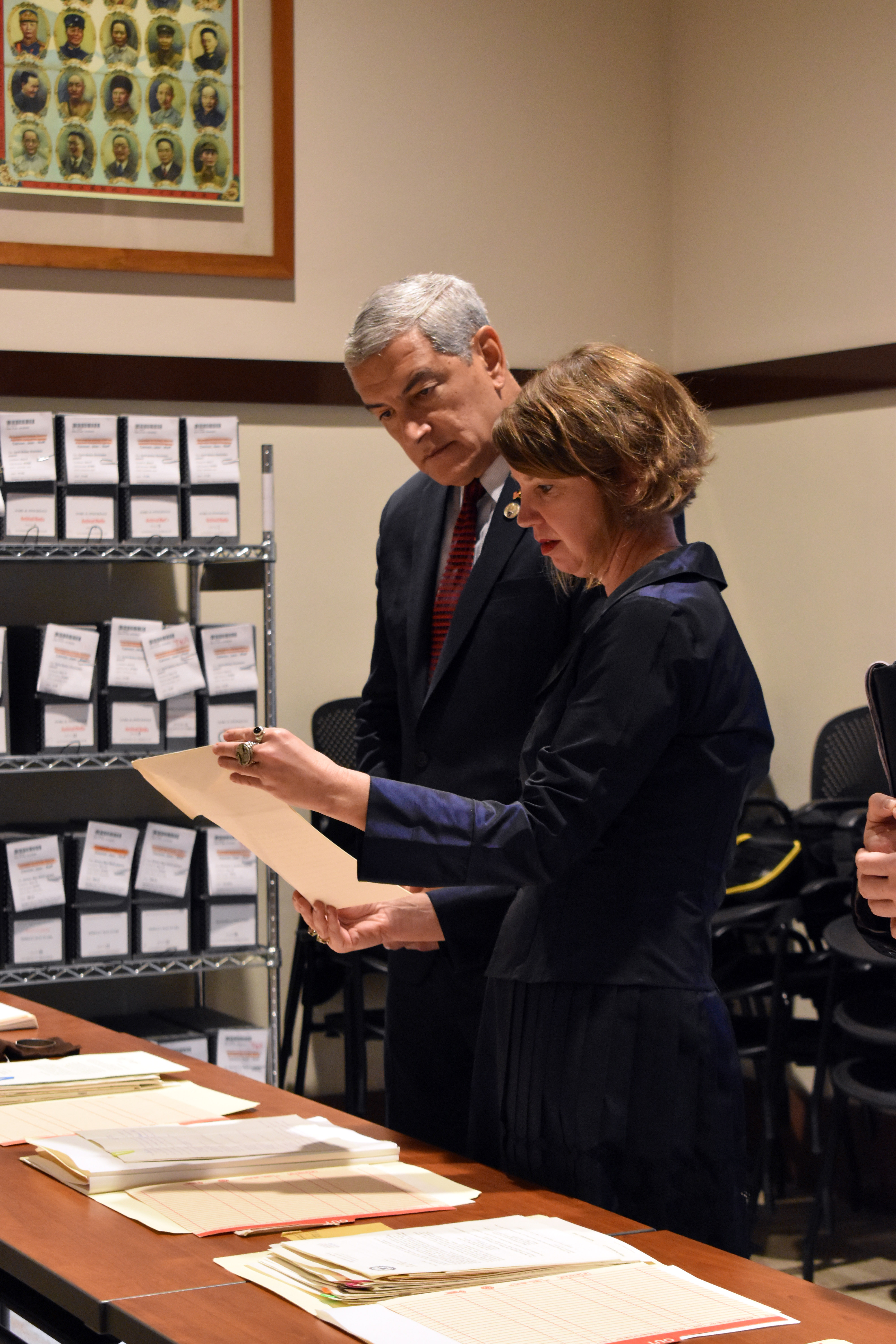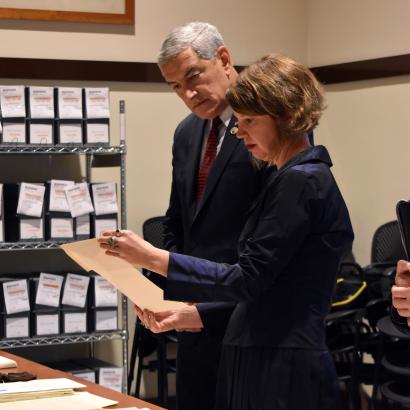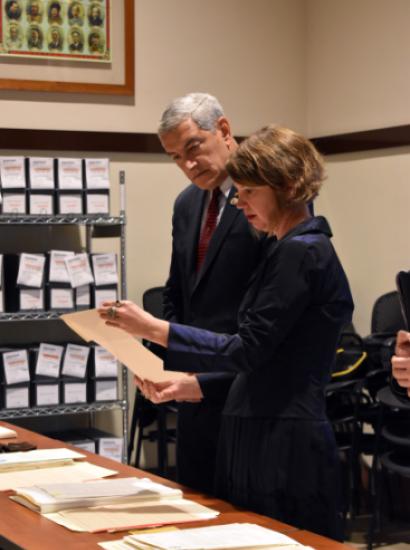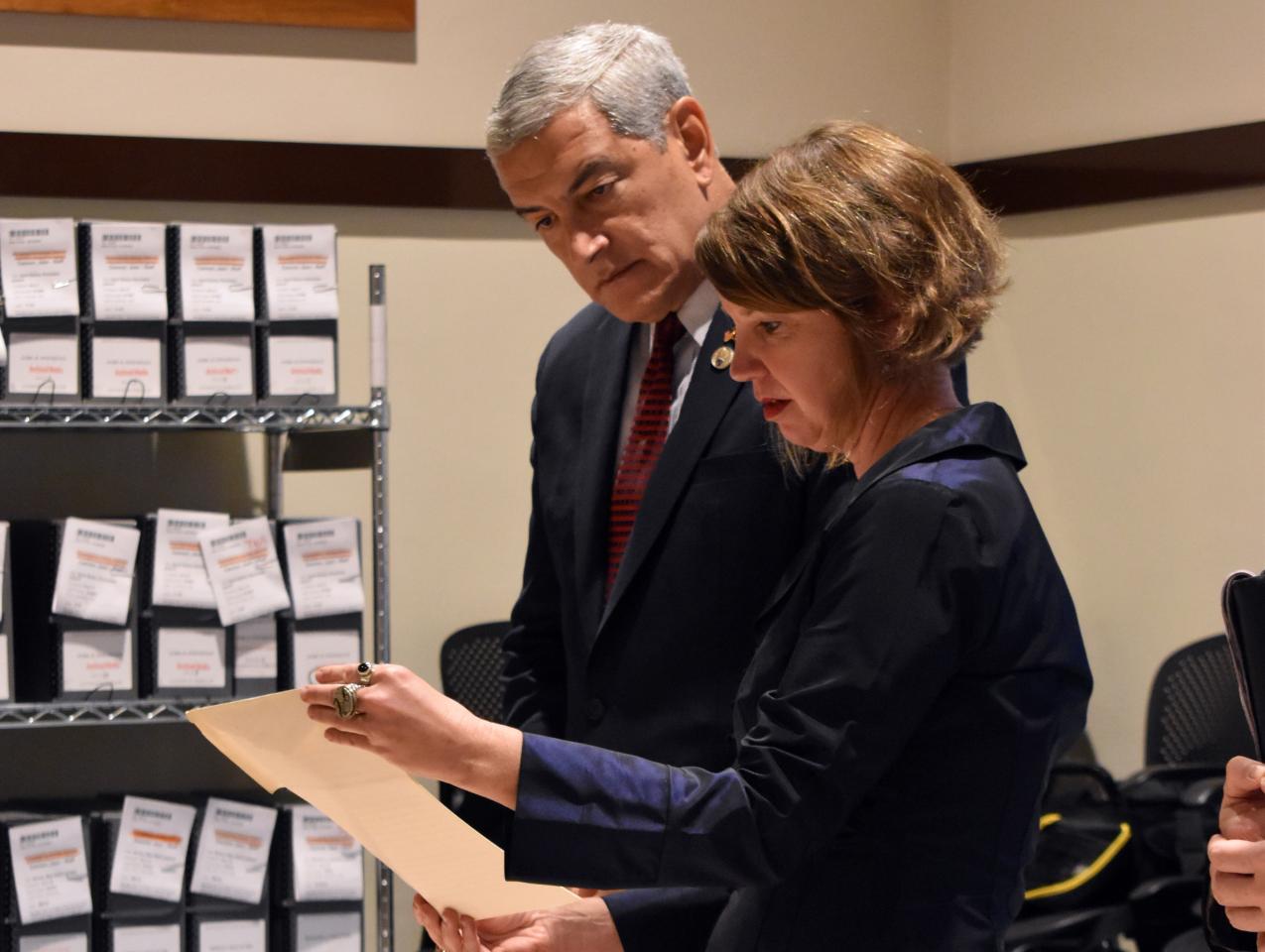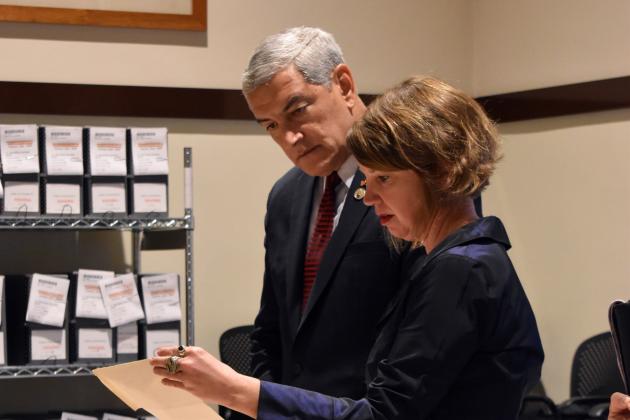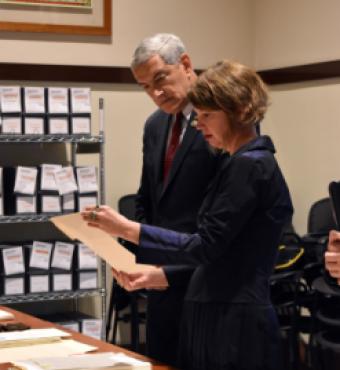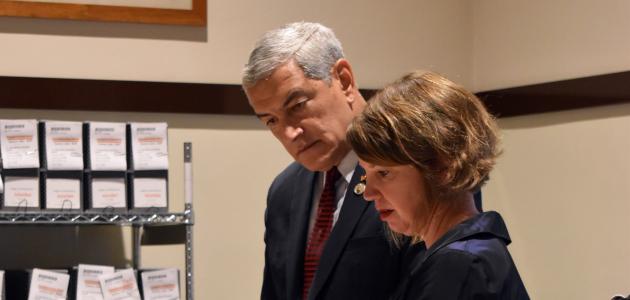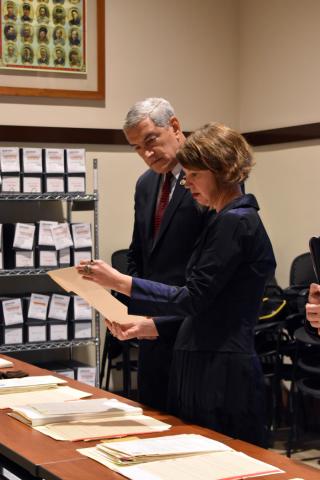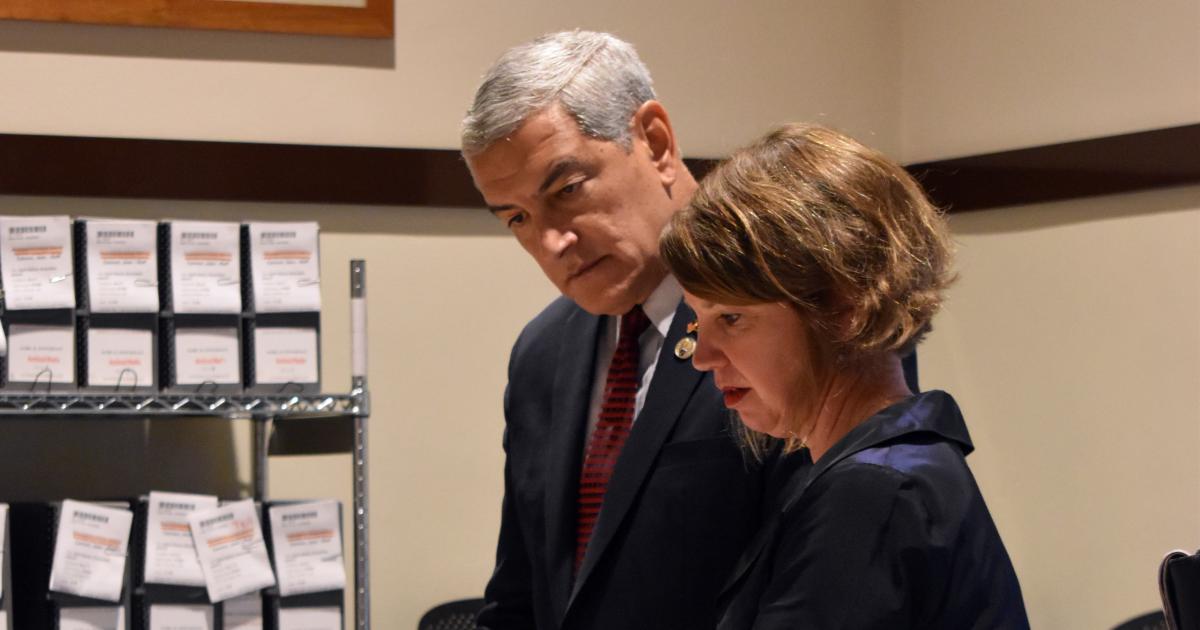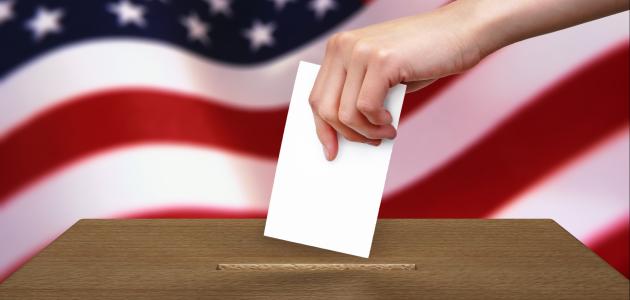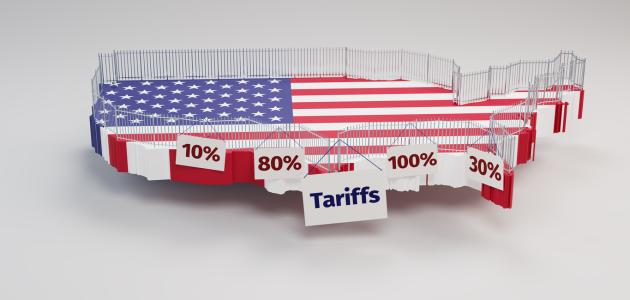Hoover Institution (Stanford, CA) – The director of the Defense POW/MIA Accounting Agency, Kelly McKeague, and a small cohort of his colleagues visited the Hoover Institution on Thursday, October 19, to hear a presentation from Library and Archives Curator for North American Collections Jean Cannon and to share information about the agency’s work with a group of Hoover Fellows.
Cannon kicked off the visit with a special presentation in Hoover Tower on select archival materials pulled from the collections of Vice Admiral James Stockdale and his wife, Sybil. Then-Captain Stockdale, a pioneering naval aviator and onetime Stanford graduate student, was shot down over Vietnam in 1965 and remained a prisoner of war there for almost eight years. Upon his release during Operation HOMECOMING—an effort that itself had much to do with the tireless advocacy of Sybil Stockdale, founder of the League of Wives—Stockdale was awarded the Medal of Honor and went on to continue a distinguished public service career.
Archival materials presented included letters from President Nixon to Mrs. Stockdale, photographs of the Stockdales, Christmas cards, Captain Stockdale’s stainless steel POW bracelet dated “9-65,” and moving personal letters between the separated couple. Cannon emphasized how the constraints of North Vietnamese guard censorship prevented Jim and Sybil from writing on many topics. “There was a void,” Cannon said. Yet “both Stockdales were writing all the time,” she said, adding that their copious correspondence—some of which incorporated secretive, CIA-developed codes—has become an invaluable resource for scholars of the Vietnam War era.
Following the up-close review of Stockdale archival materials, Hoover Institution director Condoleezza Rice welcomed the distinguished guests to the Hoover Institution and commended the work of the POW/MIA Accounting Agency. Rice highlighted the “incredibly important mission” of the agency and shared some of her recollections from traveling to Vietnam with President George W. Bush and helping to repatriate American remains from the Vietnam War.
Following Rice’s remarks, McKeague described the operations of the Defense POW/MIA Accounting Agency. He stressed that the agency is tasked with a “sacred mission” grounded in a “moral imperative”: to honor the promise made to military members and their loved ones that no American service member lost in combat is left behind.
Throughout his presentation, McKeague—a former air force major general—emphasized how the process of accounting for the location of American remains and conducting repatriation operations requires partnerships with many stakeholders, including military services, universities, diplomats, private organizations, and philanthropic individuals interested in supporting this work.
The Defense POW/MIA Accounting Agency can form partnerships with outside groups and is actively expanding such partnerships, including in Silicon Valley.
McKeague also discussed how remains repatriation efforts constitute an essential element of American diplomacy and foreign policy. As an example, he recounted the evolution of Vietnamese government policy toward cooperation with US personnel recovery efforts, and how that cooperation ultimately played a role in the normalization of diplomatic relations between the two nations in the mid‒1990s. Vietnam and the United States today maintain a robust partnership in recovering American remains from that nation, and McKeague highlighted the remarkable degree to which Vietnamese civilians continue to assist in these efforts despite the complex history of American involvement in their nation.
McKeague also relayed some of the tumultuous history of engagement with the government of North Korea on the issue of remains repatriation. While there have been periods of limited cooperation in the past, currently that nation is the only place on Earth—besides the depths of the oceans beyond several hundred feet, where divers are unable to safely operate—where the Defense POW/MIA Accounting Agency is unable to actively pursue its work. Unfortunately, thousands of American service members remain uncollected north of the Korean DMZ.
After McKeague’s presentation, Hoover research fellow David Berkey, a classicist and historian, reflected on how the agency’s work connects to the mission of the Hoover Institution. Berkey noted how a primary goal of the Institution, dating back to the vision of its founder Herbert Hoover, is to promote peace through the study of war.
The visit by DPAA officials offers a prime example of the Hoover Institution engaging in mutually productive collaboration with government partners. The visit afforded Hoover’s Library & Archives the opportunity to share relevant archival and historical materials with knowledgeable guests who are practitioners in the field of twentieth-century military history. Simultaneously, the Hoover fellows and staff who attended the presentation from McKeague were provided valuable insight into American POW and MIA accounting and recovery efforts.







